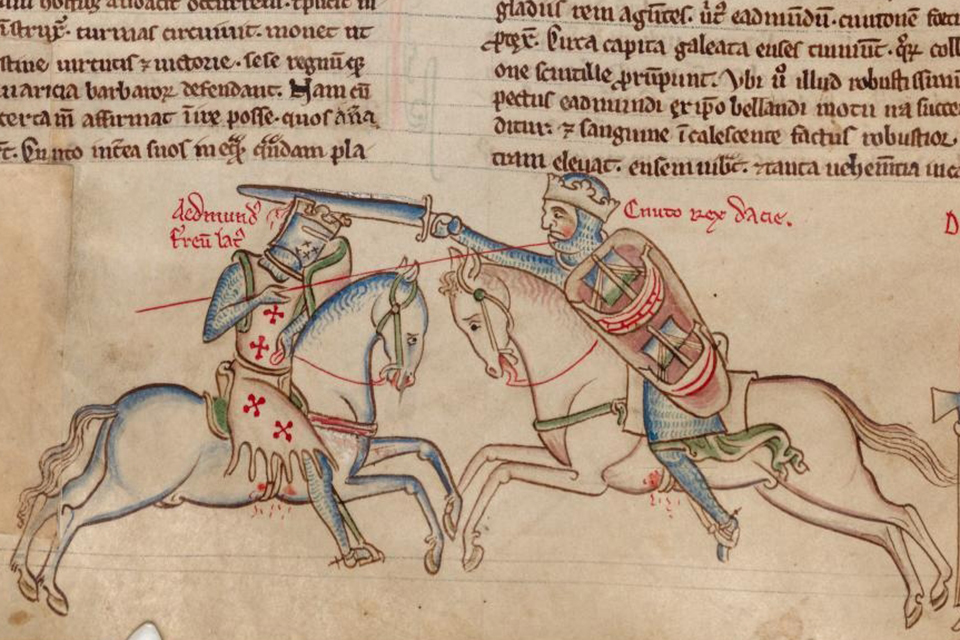In 2016, when the English decided to leave the EU, several international conferences were organised to shed light on the conquests of Medieval England by Cnut the Great and William the Conqueror. New books present some of these papers and new perspectives.
In 2016, several conferences were organised in the heady days of the election leading up to Brexit. Now, the papers have been published from several of these conferences, presenting us with a cultural history of the events, which took place a thousand years ago. In particular, three recently published books offer different perspectives on the events which took place a thousand years ago. Do read the three books in following order.
The Cambridge Companion to the Ages of William the Conqueror
Ed. By Benjamin Pohl
Cambridge University Press 2022
In the 19th century, biographies of great men flooded the market for books on history. Great men mattered until the Annales School presented a new and refreshing paradigm pushing the cultural and social history of the life and times of ordinary people.
However, in the 21st century, when social media has fostered a new preoccupation with our neighbours as well as persons like Trump, Putin, and Xi Jinping, we see many more biographies published. One of these might have been the new companion to William the Conqueror. By contrast, this companion introduces us more to the world of William and less to the man himself.
Accordingly, this book offers a fine introduction to not just the three realms – Normandy, England, and Scandinavia – but also the landscapes and settlements, the social strata and their institutions, as well as the lifeworld and mentality. As such, the companion proactively states in the introduction that it is not intended to be a companion to William the Conqueror but the companion to his “the age”. Thus, the present book does not offer an introduction to the conqueror’s life and career, nor are we treated to the minutiae of his invasion or the Battle of Hastings. Instead, we get a proper stage-setting or sounding board, which can be used as an introduction to the two books mentioned above.
Emphatically, this is also the intention of the editor, who writes that “his” companion is intended to “buck the trend” of students collecting exam results and grade points. Instead, this book aims to offer “contextual information and guidance” to students who wish to embark on the exciting journey of discovering a corner of the history of the Middle Ages.
Anglo-Danish Empire: A Companion to the Reign of Cnut the Great
Ed. By Richard North, Erin Goeres, and Alison Finlay
De Gruyter 2022
Anglo-Danish Empire: A Companion to the Reign of Cnut the Great has come out of a conference titled “Æthelred II and Cnut the Great: The Siege of London in 2016”. Jointly organised at the University College of London and the University of Winchester, the conference was part of a research project intended to explore the change of regime in 1016 in not just England but Europe as a whole.
The book does speak to the themes of immigration, government and Europe, but it also presents us with a cultural history of the life and times of Cnut the Great, which is both intriguing and vastly entertaining. Thus, we encounter Cnut as a latter-day Aeneas, a Viking tomb-raider in high spirits, a youngster bent on enjoying the good life, and a king attracting the best and the most skilled artists and poets to his court. And we follow him archaeologically to his coronations in both Winchester and Viborg and join him on his tour of Europe, ending up as a pilgrim in Rome. A man of all times, in short. Highly entertaining and hence recommended.
Conquests in Eleventh-century England 1016,1066
Ed by Laura Ashe and Emily Joan Ward
The Boydell Press 2020
“Conquest: 1016,1066” was the title of a conference held in Oxford in July 2016 to mark the millennial anniversary of Cnut’s conquest of England and the 950th anniversary of the Norman conquest. The aim was explicitly to do comparative history. Out of this event grew the publication of some papers from this conference, which were paired with separately commissioned papers widening the scope of the original programme.
While focusing on the high politics, the leading players, and the legal and bureaucratic practices surrounding the events, a cultural history of different persons and perspectives takes the scene. With splendid articles on the social, ideological, and artistic framework, a proper cultural history is sketched in this wide-ranging book.
FEATURED PHOTO:
Cnut the Great and Edmund ironside at the Battle of Assandun. Source: Matthew Paris, Chronica Majora, Cambridge, Corpus Christi College MS. 26, fol. 80v/Wikipedia (Open Domain)



